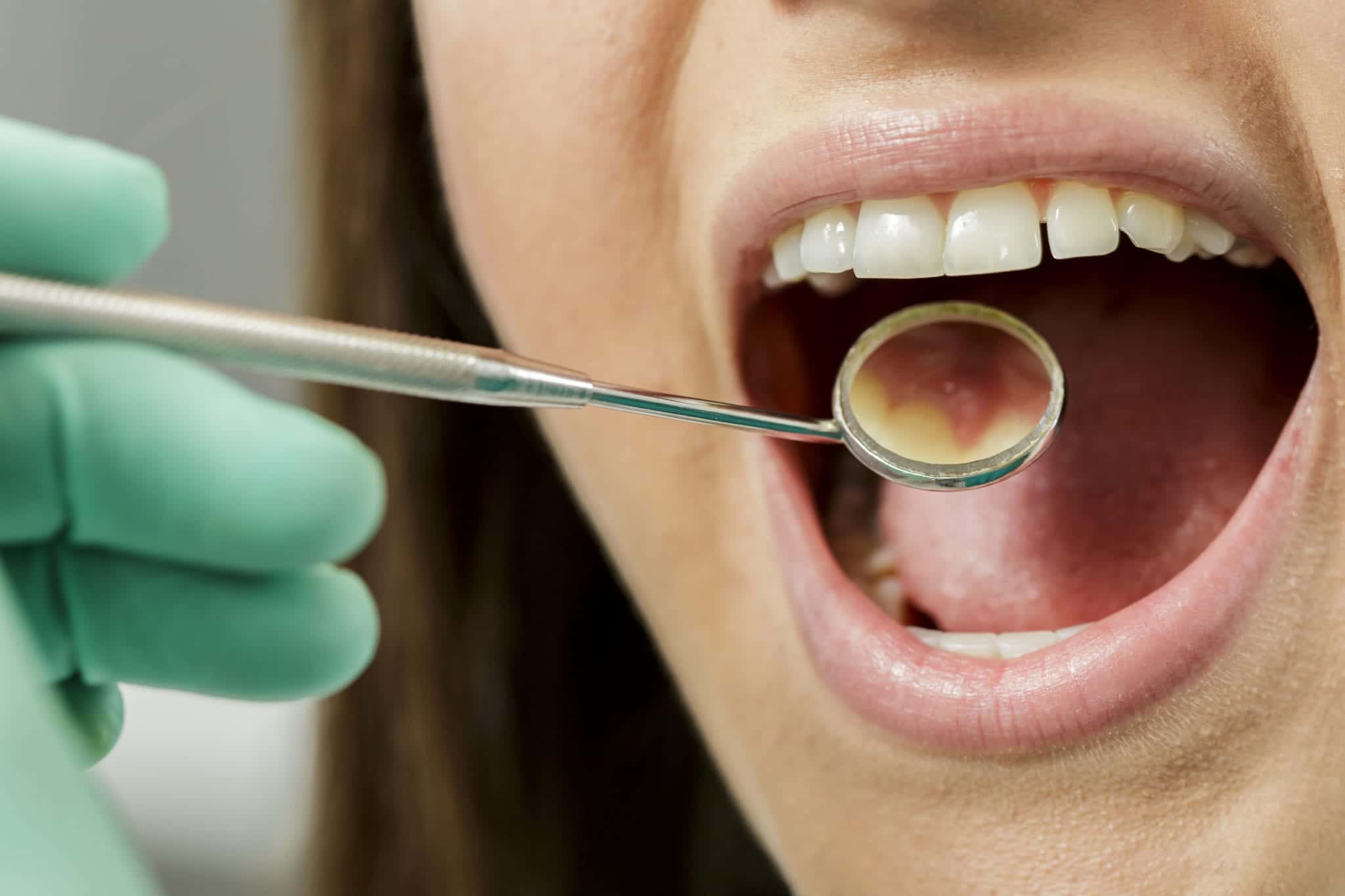
Toxic shock syndrome (TSS) is most common in menstruating women and is caused by an overgrowth of bacteria on feminine hygiene products. However, TSS can also result from dental complications in rare cases.
Although rare, this syndrome is life-threatening, so it’s important to know how it can stem from dental health conditions, and what to look for.
We’ve put together a guide covering the basics of TSS, dental health risk factors for developing TSS, and signs and symptoms of TSS to look for.
If you feel that you could have dental health risk factors for TSS, call your dentist right away as a preventative measure. However, TSS itself is a medical emergency. If you think that you’ve developed TSS, seek emergency medical attention by calling 911 or going immediately to the closest emergency room.
Understanding Toxic Shock Syndrome (TSS)
Toxic shock syndrome (TSS) occurs when certain types of bacteria overgrow somewhere in the body, and the bacteria release highly potent toxins, which can be deadly in some cases.
The most common bacterial culprits for TSS are:
- Staphylococcus aureus
- Clostridium sordellii
- Streptococcus pyogenes
These bacterial species commonly inhabit the body, including the mouth, and don’t cause any ill effects at normal levels. However, when these bacteria overgrow and the conditions are right, they can release deadly toxins.
The body responds dramatically to these bacterial toxins, with a sharp drop in blood pressure that deprives the vital organs of oxygen, and can lead to death. TSS is always considered a medical emergency.
The Link Between Dental Health and TSS
TSS is most common in menstruating women, especially those who use super-absorbent feminine hygiene products, which can accumulate large amounts of common-culprit bacteria.
However, TSS can also happen to men and women recovering from surgery, an open wound, a burn, or the use of a prosthetic device. In some cases, it has followed dental surgery and oral infections.
For example, the British author, artist, and director Clive Barker recently had a nearly-deadly brush with TSS after a dental procedure. The procedure Barker underwent released a large amount of the bacteria directly into his bloodstream, leading to the release of toxins and the development of TSS.
Barker went into a coma and was hospitalized for several days. His doctors even admitted that they did not anticipate his survival until he began to fight, attempting to remove the tubes that were in his throat.
Ultimately Barker made a full recovery, stating that “After a few days of nightmarish delusions I woke up to my life again… And here I intend to stay.”
Risk Factors for Dental TSS
Fortunately, TSS is a very rare complication of dental procedures. In general, this only occurs when there is an unusual overgrowth of toxin-producing bacteria in the mouth.
The following conditions could cause an abnormal amount of bacterial overgrowth:
- A tooth abscess, or pocket of pus that develops around a tooth due to an infection
- Oral staph infections, in which staphylococcus bacteria overgrow on the teeth and gums
- An open wound or other infection in the mouth

Common symptoms of dental abscesses include:
- Inflammation around a tooth, which can be detected by pain, redness or swelling
- Swelling in your face or cheeks, especially on the same side as the affected tooth
- Sensitivity to pressure or temperature
- Fever
- Bad taste in your mouth
- Bad smell coming from your mouth
Common symptoms of a more generalized oral staph infection can include:
- Redness or swelling inside of your mouth
- Painful or burning sensation in your mouth
- Redness, pain or swelling at one or both corners of the mouth, also known as angular cheilitis
If you have any symptoms of a dental abscess or oral staph infection, call your dentist right away or seek out emergency dental care. This can prevent TSS, the relatively rare but life-threatening complication of oral infections.
TSS Symptoms: When to Get Help
It bears repeating: TSS is always a medical emergency. If you notice the following signs and symptoms, seek emergency medical attention:
- High fever that comes on suddenly
- Low blood pressure
- Diarrhea or vomiting
- Confusion
- Muscle aches
- A flat red rash that looks like a sunburn, particularly on your palms or the soles of your feet, but can cover other parts of the body as well
- Redness of the eyes, mouth, and throat
- Seizures
- Headaches

TSS can arise from dental complications and is life-threatening. Call your dentist immediately if you think you could have an abscessed tooth, and call 911 if you develop symptoms of TSS, particularly if you’ve recently had a dental problem or procedure.






